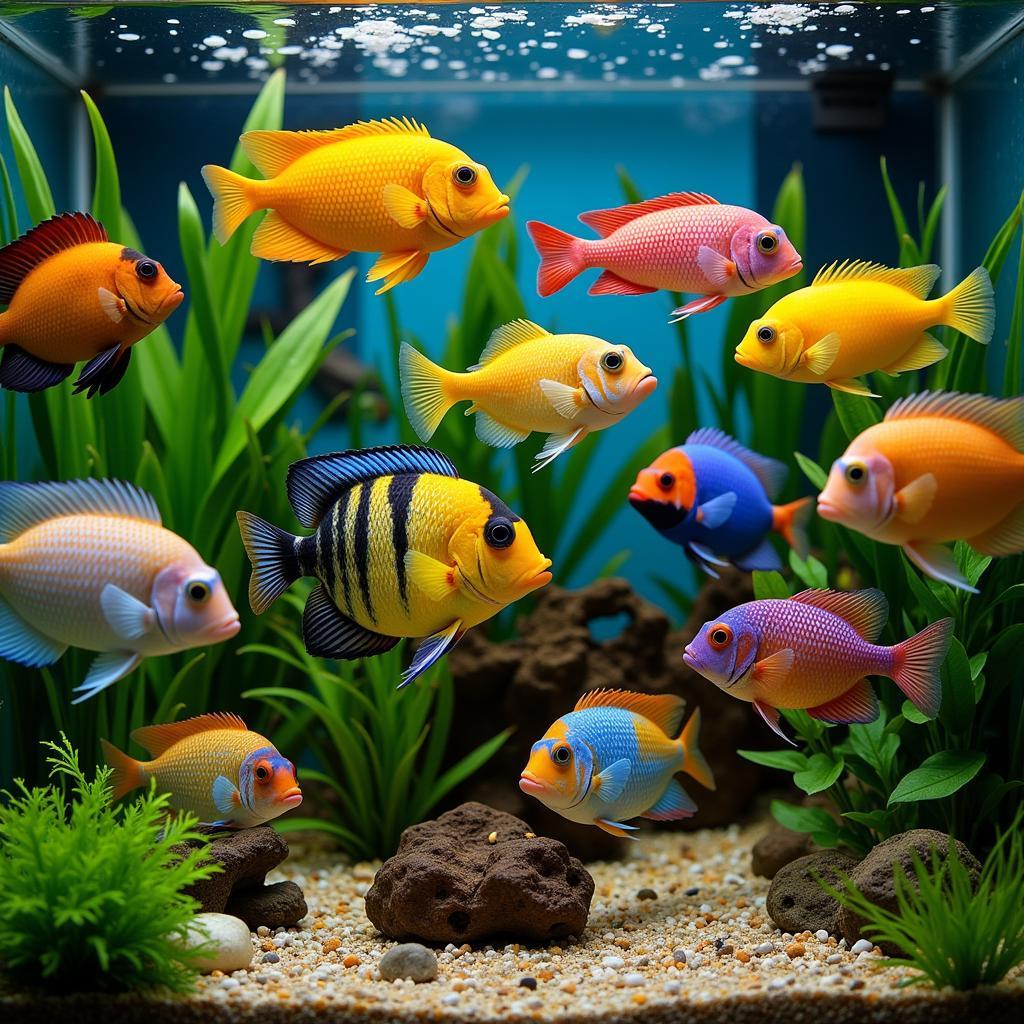Exploring the African Animal Food Chain: A Journey Through Interconnected Life
The African continent boasts an astonishing diversity of life, with a complex and fascinating web of relationships connecting its inhabitants. At the heart of this intricate ecosystem lies the African Animal Food Chain, a dynamic system where every creature plays a vital role, ensuring the balance of nature. This intricate network, where predators hunt prey, and scavengers clean up the remains, showcases the delicate balance that sustains life in Africa’s diverse landscapes.
Understanding the Levels of the African Animal Food Chain
The African animal food chain is organized into several trophic levels, with each level dependent on the level below it for sustenance.
Producers: The Foundation of Life
At the base of the food chain are producers, primarily plants. These green giants, through photosynthesis, convert sunlight into energy, providing the foundation for all other life forms. From the towering baobab trees of the savannah to the lush mangrove forests along the coast, African plants provide a diverse array of food sources for herbivores.
Primary Consumers: Herbivores in the African Landscape
Herbivores, like zebras, elephants, and giraffes, constitute the primary consumers. Their primary diet consists of plants, directly utilizing the energy stored by producers. These creatures, in turn, become prey for carnivores higher up the food chain.
Secondary Consumers: Predators in the African Wild
Carnivores, including lions, leopards, and cheetahs, are secondary consumers. They depend on herbivores for their sustenance, playing a crucial role in regulating herbivore populations and maintaining the delicate balance of the ecosystem.
Tertiary Consumers: Apex Predators at the Top
At the pinnacle of the food chain stand apex predators, such as crocodiles and hyenas. These formidable creatures are at the top of the hierarchy, often preying on both herbivores and other carnivores. They play a critical role in controlling populations and ensuring a healthy ecosystem.
Decomposers: The Unsung Heroes of the Food Chain
Behind the scenes, decomposers, such as bacteria and fungi, work tirelessly to break down dead organisms, returning nutrients to the soil and fueling the cycle of life. They play a vital role in ensuring the sustainability of the ecosystem.
The Impact of Human Activities on the African Animal Food Chain
Human activities have a significant impact on the delicate balance of the African animal food chain. Habitat loss, poaching, and climate change disrupt the intricate relationships between species, leading to population declines and even extinctions.
“We need to understand that the African animal food chain is interconnected,” says Dr. Aisha Mbogo, a renowned wildlife biologist. “Disrupting one part of the chain can have cascading effects throughout the entire ecosystem.”
The Importance of Conservation
Conservation efforts are essential to protect the African animal food chain and the biodiversity it supports. Protecting habitats, fighting poaching, and mitigating climate change are crucial steps toward ensuring the future of Africa’s amazing wildlife.
FAQ
What are some examples of animals in the African animal food chain?
The African animal food chain is diverse, including iconic animals like lions, zebras, giraffes, elephants, leopards, crocodiles, hyenas, and many more.
How does the African animal food chain differ from other food chains?
The African animal food chain is unique due to its high biodiversity and the presence of iconic megafauna, such as elephants and lions, which are not found in other regions.
What are the benefits of a healthy African animal food chain?
A healthy African animal food chain ensures biodiversity, supports ecosystems, and provides valuable resources for humans, such as tourism and traditional medicine.
What can I do to help conserve the African animal food chain?
You can support conservation organizations, advocate for sustainable practices, and reduce your carbon footprint to protect this vital ecosystem.
What are some of the challenges facing the African animal food chain?
The African animal food chain faces challenges such as habitat loss, poaching, climate change, and human-wildlife conflict.
The African animal food chain is a testament to the intricate web of life on our planet. By understanding its complexities and embracing conservation efforts, we can ensure the survival of this remarkable ecosystem for generations to come.

